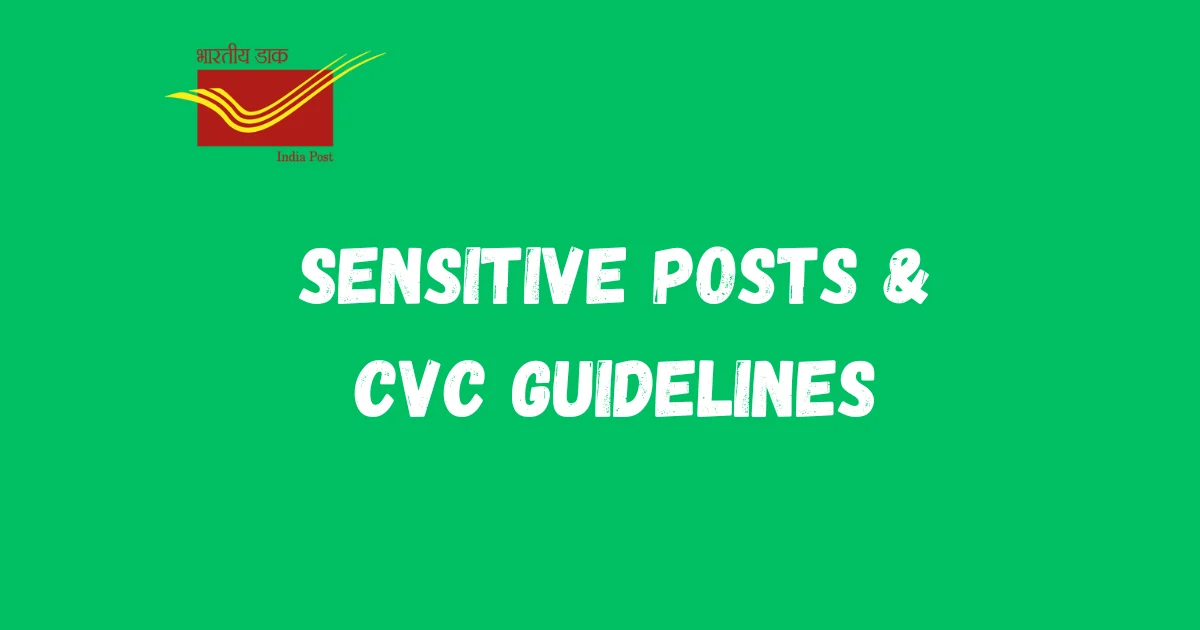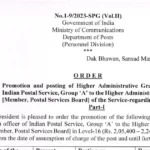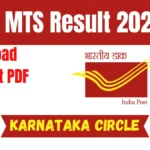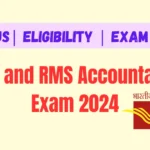Key Highlights
Top 5 Key Rules for Managing Sensitive Posts & CVC Guidelines to Ensure Accountability and Integrity
Rules for Managing Sensitive Posts & CVC Guidelines: The management of sensitive post is an important activity for any organization that will ensure the accountability, transparency, and integrity of the administrative framework. CVC has prescribed clear-cut directives regarding the rotation and tenures of officers placed in sensitive posts with a view to check the misuse of power and smooth working.
Tenure for Sensitive Posts
According to CVC guidelines of 11 September 2013, the officials should not be retained in the same position or place for a long time. It has prescribed tenure for sensitive posts within 2-3 years. After crossing the said period, there must be rotation of the employees to different positions or places. This policy minimizes malpractice and brings freshness and new dimensions to critical posts.
Sensitive Posts Identified
The Department of Posts has located and identified several roles and locations as sensitive due to their nature and associated risks. These are as follows:
Post Offices
- Single-handed and double-handed post offices
- BNPL (Business Network Post Lounge) centers
- BPC (Business Post Centers)
- E-commerce centers
- Saving bank counters
Operational and Financial Roles
- Treasury handling
- Cheque clearance
- Billing operations
- Counter operations
- Claim cases
CBS & PLI Branches
- Core Banking Solution (CBS) roles
- Postal Life Insurance (PLI) branches
- CEPT/SDC (Software Development Centers)
Administrative Functions
- Vigilance and investigation
- Recruitment and staffing
- Transfer and posting
- Building and infrastructure
- Procurement and stock management
MMS Units
- All posts in Mail Motor Service (MMS) units come under the category of sensitive.
Marketing Executives and System Managers
One of the notable orders is about Marketing Executives (ME) and System Managers (SM). According to the Directorate’s order of March 8, 2018, these positions have been termed as sensitive posts. But sensitivity applies only to the officials holding these posts and not to the posts themselves.
This differentiation results in the following:
- A System Manager cannot be transferred to another office performing the same role after tenure.
- He must, however, be relieved of the position altogether and assigned a new responsibility.
This way, no individual will hold any sensitive position for a prolonged period and potentially create an element of bias or operational dependence.
Latest News
Reason for Rotation
The rotation policy seeks to:
- Prevent The Entrenchment Of Influence Or Power In Sensitive Positions.
- Reduce The Vulnerability To Corruption And Unethical Practices.
- Promote Skill Development As Employees Are Exposed To Various Responsibilities.
- Reduce Organizational Inefficiency Dampened By Drift.
Implementation Challenges
Those principles are critical to maintaining integrity, but their implementation faces some challenges. Among them are:
- Determining available substitutes for sensitive positions.
- Staff shortages in positions such as System Managers.
- Ensuring continuation of operations when staff change.
However, adherence to these rules is essential for maintaining accountability and fostering a culture of fairness in the workplace.
Conclusion: Sensitive Posts and CVC Guidelines
To ensure sensitive post requirements, substantial vigilance and accountability make the rotation of officials in these roles a critical aspect of good governance. Within organizational structures, proper adherence to guidelines of the CVC and relevant orders of the department help build minimal risk-appreciation, operational transparency, and wholesome fairness and integrity among their processes. In keeping with this, rotations essentially reflect commitment to the administration as corruption-free and efficient.
Credits: Guru’s Daily Insights -10












